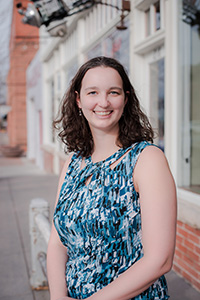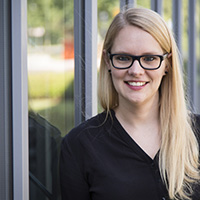April 19, 2018
We are pleased to present the following candidates as nominees for election to the SoLAR Executive. This individual will hold the position of the newly created Inclusion Chair role. All SoLAR individual and students members are eligible to vote for all positions. Links to access the online voting system will be sent to SoLAR members via SurveyMonkey to your email. Ballots will close on May 1, 2018 at 5:00pm Eastern Time. Any questions, please email solarsocietymgmt@gmail.com
Candidates for SoLAR Executive Member & Inclusion Chair
(9 Candidates, 1 Positions Available)
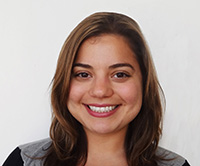 Golnaz Arastoopour Irgens, USA
Golnaz Arastoopour Irgens, USA
Northwestern University
Short explanation of ideas for the roles, responsibilities and outcomes of the Inclusion Chair: The SoLAR Inclusion chair creates a supportive climate for marginalized and underrepresented groups in learning analytics research and cultivates diverse membership in terms of ethnicity, race, gender identification, geography, and disciplines. The chair is responsible for leading a working group, many of whom are members of underrepresented groups in learning analytics. To recruit members, the chair creates promotional materials that welcome and support all people, and she partners with inclusion committees at various research institutions. The chair also creates opportunities for purposeful dialogues on issues surrounding diversity and inclusion. She organizes special sessions at LAK/LASI and advocates for funding for those who are historically underrepresented in technology-oriented fields (such as white women, women of color, men of color, and first-generation college students) and for those conducting research on broadening participation. To implement these initiatives, the chair will collaborate closely with the SoLAR Executive Committee. To evaluate progress, she measures diversity growth in SoLAR and the impact of these initiatives using surveys and interviews. Overall, these initiatives will establish a culture where all SoLAR members feel empowered to freely express their viewpoints and will maximize the potential and contribution of all individuals, not just those who are highly represented.
Biography: Golnaz Arastoopour Irgens is a postdoctoral researcher with both the Center for Connected Learning and Computer-Based Modeling (CCL) and the Tangible Interaction Design and Learning (TIDAL) Lab at Northwestern University. While earning her B.S. degree in mechanical engineering, she worked as a computer science instructor and curriculum designer for Campus Middle School for Girls in Urbana, IL. She then earned her M.A. in mathematics education at Columbia University and taught mathematics in the Chicago Public School system for two years. Working with the Epistemic Games Group at the University of Wisconsin-Madison, Golnaz focused her Ph.D. research on modeling and measuring connected design learning in engineering digital learning environments using discourse network analytics. Her current research examines the intersection of STEM practices and computational thinking and centers on how to model and measure computational practices and thinking.
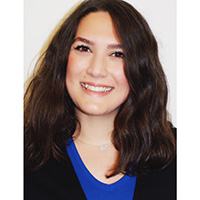 Duygu Bektik, UK
Duygu Bektik, UK
The Open University
Short explanation of ideas for the roles, responsibilities and outcomes of the Inclusion Chair:
Over the last 10 years, I have been passionately involved in supporting the gender equity, particularly in the computing field. This “inclusion chair” position appears to be an ideal blend of my research in learning analytics (LA), and expertise in promoting gender diversity in the STEM. I am particularly impressed by the fact that the position is for working towards creating “ILIAC: Inclusive LearnIng Analytics Community” and making the LA research open to all age, gender, and ethnic groups to promote an inclusive environment. Inclusion in the context of SoLAR would refer to a broad range of socio-technical approaches that enable the participation of all LA researchers from across the disciplines while lowering and removing barriers that impede specific groups. As SoLAR Inclusion Chair, I would be particularly aiming to support young generations of LAK researchers, aka doctoral students, to aspire to and reach their full potential and be part of the LAK community and become the torchbearers of the LA field. To do so, potential work would include ensuring gender diverse doctoral consortiums, providing scholarship opportunities to female students whose work are accepted for presentation, designing a mentoring scheme to give career development opportunities and plug the information gap for students with no prior connection to SoLAR, and strategically targeting the diverse range of students not just from the computing/technology departments, but also across the disciplines including social sciences, and humanities, and building a reputation as SoLAR of choice for women scientists.
Biography:
Dr Duygu Bektik is a Lecturer (Assistant Professor) at the Open University, UK’s Institute of Educational Technology. She did her undergaduate degree in Computer Science and Educational Technologies at the Bilkent University, Turkey, followed by a Software Engineering degree. She completed her Ph.D. degree in discourse-focused learning analytics in 2016 and has presented her research at various LAK conferences since 2012. She is a strong advocate for gender equity, especially in STEM subjects. She has been involved in several women in computing-related activities for the last 10 years, including events led by influential tech companies such as Google and Facebook. Previously, she worked for BILWIC, Bilkent ACM-W Student Chapter and Club for Women in Computing, as the Vice Chair for two years. BILWIC’s aim was to provide mentorship programs for female students in computing and support their technical needs through hands-on activities. The club aimed to provide role models for female students by organising seminars and conferences in order to bring students together with successful women in academic and business areas of computing. As part of BilWIC’s mission, Duygu worked to create a social environment for female university students with common interests, ambitions, and concerns while guiding them in the direction of computing-related fields. She currently works for the ACM-W Europe’s womENcourage conference as a member of the program committee and poster organisation chair.
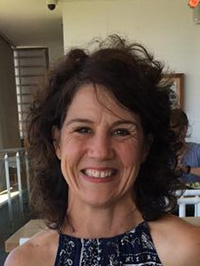 Cassandra Colvin, Australia
Cassandra Colvin, Australia
Charles Sturt University
Short explanation of ideas for the roles, responsibilities and outcomes of the Inclusion Chair: If successful in my application for the Inclusion Chair, I would work closely with the SoLAR executive, and broader community to:
– Understand the diversity in the community – its make-up and profile – through the lenses of gender, age, culture, citizenship, discipline background – and other identity or categorical label members (and institutions) employ
– Explore relationships between these dimensions and member participation in the community
– Solicit from all members how they understand/perceive diversity ‘plays out’ in the community
– Analysis will employ (subject to approval) SoLAR data – member information and activity (research, participation in SoLAR events and so forth). Additional data will be solicited through focus groups, questionnaires
– In convening a working group (WG), effort will be made to ensure that it represents the diversity of its members. The WG will establish a Terms of Reference, and will report regularly to the SoLAR Executive
– Once the WG has understanding of how diversity and inclusion ‘plays out’, it can develop initiatives. These could include mentoring, targeting of particular cohorts in the community to offer specific support and prominence, developing incentives/rewards for ‘good practice’ in inclusion through the community, and consideration of bilingual offerings in some SoLAR events.
– Conversations and initiatives generated through this exercise would include all members. Inclusion (and exclusion) plays out across populations in multilayered, subtle ways, and demands an approach that recognises this, and does not bifurcate populations.
Biography: I am currently Manager, Adaptive Learning and Teaching Services at Charles Sturt University. In this role I provide strategic and operational leadership to the university on the design, implementation, and uptake of LA across the institution. Prior to this appointment I was Manager, Learning Analytics at University of South Australia.
My professional and academic experience has exposed me to many of the issues relating to equity and inclusion. Prior to working in LA-related roles, I spent 10 years managing transition and inclusion programs for international students at two separate universities. This was a privileged position, requiring me to build community relationships and structures to ensure that minority voice was protected, heard, and needs met. I provided counselling, advisory, and advocacy services to students from over 80 countries and liaised with multiple ethnic communities both within and outside the university in the design and implementation of interventions and targeted support programs. My work exposed me to a number of substantive equality and minority interests including culture, socioeconomic status, gender, race, and language background. Programs that I managed have won national awards for their inclusive design, commitment to equity principles, and impact.
My PhD (2016) explored intercultural interactions on a university campus and revealed the structuring effects of student’s cognitions, and university practices (particularly pedagogical), on intercultural interactions. The thesis was multidisciplinary (sociology and socio-cultural psychology), and dimensions explored included identity, power, and structure and agency.
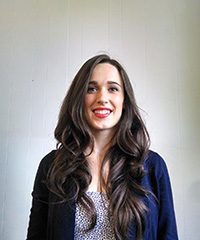 Danielle Hagood, USA
Danielle Hagood, USA
University of California, Davis
Short explanation of ideas for the roles, responsibilities and outcomes of the Inclusion Chair: Since joining SoLAR in 2016, I’ve appreciated actions supporting gender parity and multinationalism. By serving as the Inclusion Chair, I’d like to support existing endeavors and future efforts. To me, overall, an Inclusion Chair should coordinate the intersections of inclusive initiatives embedded within SoLAR activities—inclusion is an attribute of all efforts, not a siloed endeavor. This, and facilitating an Inclusion Working Group, suggests to me that this role requires organization and detail management rather than take-charge leadership.
Since any strategic plan would be best co-developed with the Working Group, I expect my initial ideas would evolve. But to start, I am interested in several initiatives. First, I’d like to create an annual survey of members assessing our inclusivity efforts and identifying further needs—since many areas of need are likely unknown to me and unrepresented within a committee. Second, I’d like to focus on tailored communications. I previously managed digital communications and member segmentation at a policy institute. Building on that experience, I want to create a database of relevant member information to both identify gaps and tailor communications to individual needs. Supporting diversity requires identifying and meeting diverse needs, not deluging everyone with everything.
Biography: I am completing a PhD in education at the University of California, Davis. My studies and mentorship emphasize learning science, with intensive training in measurement and psychometrics through a selective NSF training fellowship. Additionally, I participate as an affiliate at the university’s Data Science Institute.
My dissertation work focuses on computational psychometrics—exploring how LMS and learning system log data can be used to design assessments for facets of engagement and self-regulation. My other research interests and projects involve measuring interdisciplinarity, design-based research, K12 learning analytics, and sociocritical evaluations of technology in learning. I currently teaching as a TA for both educational psychology and the MA research capstone projects.
Within SoLAR, I serve as a co-chair to the Students SIG. This SIG’s active membership—a humble 25—are already an inclusive group comprising members of diverse geographic location (i.e. not North American centric) and gender from varied training programs and advancement.
Melanie Peffer, USA
University of Northern Colorado
Short explanation of ideas for the roles, responsibilities and outcomes of the Inclusion Chair: Learning analytics is the future of education—for everyone. Given the variety of stakeholders, it is important that SoLAR be inclusive. What does “inclusive” mean for SoLAR? The role of the inclusionchair is attempt to answer what “inclusive” means for SoLAR and develop and implement methods for promoting diverse viewpoints among SoLAR. For example, are there members of the learning analytics community who need additional resources or support to attend LAK? One possible group to target is early-career SoLAR members with young children. Travel awards could be offered to offset childcare expenses or breastmilk courier services. What about people who have a vested interested in learning analytics, but are unaware of SoLAR? Or who lack institutional resources to attend LAK or LASI? The inclusion chair could oversee outreach efforts such as monthly or quarterly virtual meet ups, each around a different theme or targeting a difference group (e.g. Women in SoLAR, individuals from a specific region, researchers with similar interests). Meet ups could be advertised through public venues such as Twitter to reach a wide audience. Outreach could also include sharing of resources, such as educational materials or guidance on ethical usage of learning analytics.
Biography: Dr. Peffer earned her Ph.D. in molecular biology from the University of Pittsburgh and completed postdoctoral training in educational psychology at Georgia State University. She is currently an assistant professor in the School of Biological Sciences at the University of Northern Colorado. Her research is interdisciplinary, integrating her background in molecular biology and educational psychology to create a synergistic program of study. Dr. Peffer’s interests include technology-enhanced learning and she is the lead developer of the Science Classroom Inquiry (SCI) simulations, which she uses as a way of assessing student’s epistemological beliefs about science via their practices in simulated authentic science inquiry. In addition to leveraging learning analytics techniques to model student practices in simulated authentic science inquiry, she also has interests in ethics and policy questions surrounding big data in education. Dr. Peffer is a Mom to a wonderful baby boy (who attended his first LAK conference in Sydney) and is currently navigating the challenges of balancing motherhood, particularly the logistics of exclusive breastfeeding, with the demands of an early career professor.
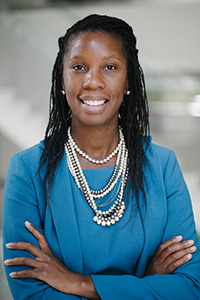 Shenita Ray, USA
Shenita Ray, USA
Georgetown University School of Continuing Studies
Short explanation of ideas for the roles, responsibilities and outcomes of the Inclusion Chair: Analytics research has the potential to transform teaching, learning, training, and development and the structures that serve as the foundation for these elements. To help realize this potential, I aspire to serve as the Inclusion Chair to work towards creating an inclusive environment at SoLAR. As the Inclusion Chair, I would aim to design, implement, and monitor innovative strategies, in collaboration with SoLAR working groups, to recruit, retain, and develop a diverse membership. Additionally, I would strive to foster an environment that encourages members and supports their efforts to engage in analytics research inclusive of diverse populations. To achieve these aims and others, I envision working collaboratively with SoLAR leaders and members to develop and implement an inclusion strategy reflective of several measurable action plans: social media, communication, partnerships, sponsored events, and networking. A few outcomes that I would use as measures of success for the work of the Inclusion Chair: increase the number of diverse members recruited and retained; increase the number of diverse members serving as leaders on SoLAR’s Executive Committee; increase analytics research published by diverse members; and increase the number of diverse individuals attending and presenting at conferences sponsored by SoLAR.
Biography: Shenita Ray currently serves as the Director of Online Operations in the School of Continuing Studies at Georgetown University. Among her many roles and responsibilities, since 2017, she has been serving as the chair of the School’s Learning Analytics Task Force. Before stepping into her current role, Ray was the Director of Distance Education and Continuing Education at Virginia Union University. This followed several years working at the University of Wisconsin where Ray was an Associate Director Distance Learning Center, an Adjunct Assistant Professor, and the Director for Midwest Culturally Inclusive Conference. Prior to her career in higher education, Ray worked for General Electric as a Six Sigma BlackBelt and as an Information Technology leader as part of the company’s Information Management Leadership Program. Ray earned her BS in Finance and Information Technology and her M.Ed in Instructional Leadership from Marquette University. In 2012, Ray earned her PhD in Educational Leadership and Policy Analysis from University of Wisconsin- Madison. Outside of work, Ray enjoys yoga, running, reading, and writing. She recently completed a hot yoga teacher training program in Paris, France and is looking forward to teaching yoga a few times a week.
Maren Scheffel, The Netherlands
Open Universiteit Nederland
Short explanation of ideas for the roles, responsibilities and outcomes of the Inclusion Chair: Hearing about the plans for an Inclusion Chair I was at first slightly taken aback by the term inclusion (possibly due to its denotation in my native language). Diversity, it seemed to me, would be a much better term. However, after having read more about the topic, I shed that language bias and got a more inclusive view on the matter. While diversity (i.e. ensuring there is a mix not only of genders, ages, nationalities, religions, and languages, but also of research backgrounds, methods, skills, expertise, educational levels, and experiences) is crucial when it comes to working together, it takes inclusion to getting a diverse mix to work together well. As the Inclusion Chair my goal is to support SoLAR in becoming an even more diverse and inclusive organisation. This ranges from feedback surveys and a suggestions box, over working groups and workshops about/by/for social and research-related diversity, to accessibility and the availability of breastfeeding and silence rooms during events as well as to diversity- and inclusion-related publications. By making diversity and inclusion part of SoLAR’s organisational policy, we ensure that everyone is welcomed, heard, valued and respected, and that everyone can contribute to the extent of their full potential.
Biography: Maren Scheffel is an assistant professor within the Technology Enhanced Learning Innovations (TELI) department of the Open Universiteit’s Welten Institute, the Research Centre for Learning, Teaching and Technology. With a background in computational linguistics she started to work in the field of technology-enhanced learning in 2009 and has since then been involved in the coordination and management (ROLE, LACE, CompetenSEA) as well as the research work (ROLE, LinkedUp, LACE, SHEILA, CompetenSEA) of several European projects. For her PhD that she obtained from the Open Universiteit in 2017, she developed the Evaluation Framework for Learning Analytics (EFLA). Next to progressing this work further, her research now also delves into the connection of learning analytics and learning design as well as visualisation techniques for dashboards. Maren has organised workshops and has served as a reviewer for journals and conferences on many occasions. She is member of the editorial board of the Journal of Learning Analytics, of the SoLAR SIG LACE and vice chair of the SURF SIG Learning Analytics.
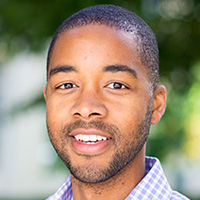 Marcelo Worsley, USA
Marcelo Worsley, USA
Northwestern University
Short explanation of ideas for the roles, responsibilities and outcomes of the Inclusion Chair:
The Inclusion Chair will help engage a more diverse and inclusive community of scholars in learning analytics research, and support the pursuit of learning analytics research that relates to equity, accessibility, inclusion and diversity. More concretely, I see the Inclusion Chair as someone who helps to develop meaningful international partnerships that extend SOLAR’s reach, helps grow learning analytics research within a larger number of institutions, and, generally, advance high-quality, impactful research. One approach is for SOLAR to develop training pipelines (e.g., extended LASI locals, internships, data challenges) for students, particularly in Africa, South America and Southeast Asia, interested in pursuing graduate studies in Learning Analytics. This may involve collaborating with organizations that advance data science and AI among women (e.g. Women in Machine Learning), under-represented populations (e.g. Black in AI) and people with disabilities. One outcome could be dedicated sessions at LAK, or, perhaps, a special issues in JLA, that look at challenges, opportunities and applications of learning analytics to issues of equity, diversity and inclusion. Another tangible is SOLAR taking measures to ensure that conference proceedings and experiences are accessible to people with disabilities, financially accessible to the global community and that it supports non-English programs and events.
Biography:
Marcelo is an assistant professor of Learning Sciences and Computer Science. He directs the Technological Innovations for Inclusive Learning and Teaching (tiilt) lab. tiilt is an interdisciplinary group that is predominantly under-represented minorities, and includes several women and people with disabilities. tiilt uses multimodal analysis and interfaces to create novel learning experiences specifically geared towards marginalized populations. Marcelo has worked with low-income African-American and Hispanic child throughout the United States, and K-12 students and teachers in Brazil, Russia and Thailand. A central objective of this global work is to spread awareness of learning analytics, learn from other communities, and, more generally, help teachers and students use and interpret multimodal data. Marcelo’s doctoral research with Dr. Paulo Blikstein helped launch the sub-field of Multimodal Learning Analytics.
Marcelo was born in Brazil and spent five years in Europe during primary school. He holds four degrees from Stanford University: Chemical Engineering (BS), Spanish & Portuguese (BA), Computer Science (MS) and Learning Sciences and Technology Design (PhD). At Stanford, Marcelo founded the Black Engineering Graduate Students Association. He has continued to advance inclusion at Northwestern through his research and teaching and also serves on the school’s Global Initiative Committee.
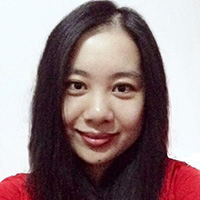 Elle Yuan Wang, USA
Elle Yuan Wang, USA
The Action Lab, EdPlus, Arizona State University
Short explanation of ideas for the roles, responsibilities and outcomes of the Inclusion Chair: For the opportunity of the Inclusion Chair, I would like to work with the working group and the executive leadership to achieve the following inclusive objectives:
Membership: Encourage and enable less-represented groups of members and prospective members to join and contribute to the development of the LAK community
Topic areas: Identify emergent trends in LAK and create a sustainable structure to cultivate these topics.
Activities and Initiatives: Provide diverse opportunities to accommodate members of the community. For example, in addition to our annual conference, LASI, what are other types activities, virtual and physical, that can help sustain frequent and efficient communication among community members of different backgrounds?
Collaboration: Encourage and enable interdisciplinary, cross-cultural, as well as industry-academic collaboration.
Measurement: Develop a strategic plan to measure the progress of the inclusion working group’s efforts to promote, elevate and foster and open and inclusive environment.
Meanwhile, I would also like to propose a symposium or workshop focusing on the various aspects of inclusivity in conjunction with LAK19 next year at ASU.
Biography: Elle Yuan Wang is a Research Scientist at the Action Lab, EdPlus at Arizona State University. Her current projects center on assessing social and emotional leaning skillsets and predicting learner longitudinal career development in large-scale online learning environments. Specifically, her projects take a comprehensive approach by linking three sources of learner data: pre-course learner motivation, within-course learner engagement, as well as post-course development. Measurement of post-course development reflects both individual learner career development as well as advancement of communities of practice. Her recent publications can be seen in Journal of Online Learning and Teaching and Journal of Learning Analytics. She obtained a Ph.D. in Cognitive Sciences from Columbia University and has led various projects funded by the National Science Foundation and the Bill & Melinda Gates Foundation.Previously, she has held fellowship and positions with Mayor Bloomberg’s Office in New York, the Office of the President at Columbia University, Columbia Technology Ventures, and MTV Networks. Link to the CV: https://bit.ly/ywangcv

